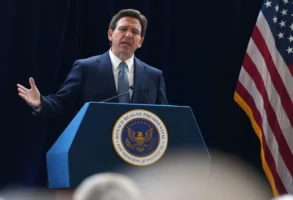
Published February 9, 2022
A new and pernicious tool for enforcing ideological conformity is sweeping across America’s colleges and universities. Recent developments show it threatening K–12 as well. I’m talking about “diversity statements,” mandatory affirmations of woke ideology by K–12 teachers and professors seeking employment, promotion, or tenure. Diversity statements amount to political litmus tests: “Prove your fealty to woke ideology, or surrender your hopes of advancement.” These vows of ideological conformity are an affront to liberty of conscience and academic freedom. Not yet widely known to the general public, educator diversity statements are quietly snuffing out the final flickers of dissenting intellectual life in our education system.
Nevertheless, diversity statements can be stopped. The wave of resistance to woke ideology coursing across the states can turn this troubling trend around. Here’s how. Together, Arizona’s Goldwater Institute, North Carolina’s James G. Martin Center for Academic Renewal, and I have just issued model state-level legislation designed to bar the use of diversity statements — and all other political and ideological tests — at public K–12 schools and universities. The model is entitled the “End Political Litmus Tests in Education Act,” and you can find a link to the text here.
Here’s how diversity statements work. Let’s say you’re applying for a teaching job at a university. In addition to submitting a CV and a description of your academic research, many universities now require you to answer a series of questions designed to prove your commitment to the ideology and practice of “diversity, equity, and inclusion” (DEI). How do you think about DEI? In what ways have you tried to advance DEI? How to you plan to further DEI as a faculty member? Some schools measure your replies to such questions with a pre-set “rubric,” and some even determine who will be in the first batch of rejected applicants based largely, or even solely, on their diversity scores.
In other words, many universities are now pre-screening job applicants for conformity to “woke” ideology — the belief that students should be considered, first and foremost, as members of a racial or ethnic group, rather than as individuals. Applicants who adhere to the classically liberal principles foundational to our education system are actually excluded.
The use of diversity statements has been escalating over the past five years. It now extends to around a fifth of higher-education institutions. You might think the practice would cluster in humanities departments, but it’s prevalent in STEM fields as well. The more prestigious the school, the more the practice is favored, a sign that diversity statements are likely to spread to many more schools. Some diversity statements are based on a few basic questions: your views of DEI, your history of commitment, and plans to practice DEI should you be hired. One school, however, puts a list of 44 questions to faculty applicants.
Critics call diversity statements the new “loyalty oaths.” In the 1950s, the University of California forced employees to swear they were not members of the Communist Party. Many refused and many were fired. Eventually, the university reversed its practice and adopted a policy still officially in place: “No political test shall ever be considered in the appointment and promotion of any faculty member or employee.” Sadly, this policy is being flagrantly disregarded by the University of California itself, which is now the leading public higher-education system employing diversity statements. With universities evidently flouting their own commitments to intellectual freedom, state legislatures must step in.
Until very recently, it seemed as though diversity statements were limited to higher education. Unfortunately, that is no longer the case. A December 2021 report in Education Week made it clear that diversity statements are now being used to screen non-woke applicants out of K–12 teaching positions. Conservative critics of public education have noted the trend, and so have the Martin Center and the Goldwater Institute. The End Political Litmus Tests in Education Act keeps diversity statements out of public K–12 schools, as well as public universities.
While the End Political Litmus Tests in Education Act models state-level legislation, its language could be adapted to a federal bill. In 2020, I announced the introduction of Senator Tom Cotton’s Campus Free Speech Restoration Act. That bill would remove the eligibility of a public university for federal loans or student grants, should the institution enact speech policies that violate the First Amendment. The Cotton bill features a multi-stage review process designed to encourage schools with unconstitutional policies to relent long before actually losing their eligibility for federal aid. The same mechanism could be adapted to schools that maintain diversity statements. That would swiftly put an end to the practice at public universities nationally.
In the meantime, every state should consider adopting legislation inspired by the End Political Tests in Education Act. While the need for such measures is a sign of how profoundly endangered our education system now is, this is a moment of hope. The counter-revolution has begun, and the drive to end diversity statements is now part of it.
Stanley Kurtz is a senior fellow at the Ethics and Public Policy Center.
Stanley Kurtz is a Senior Fellow at the Ethics and Public Policy Center. Beyond his work with Education and American Ideals, Mr. Kurtz is a key contributor to American public debates on a wide range of issues from K–12 and higher education reform, to the challenges of democratization abroad, to urban-suburban policies, to the shaping of the American left’s agenda. Mr. Kurtz has written on these and other issues for various journals, particularly National Review Online (where he is a contributing editor).





